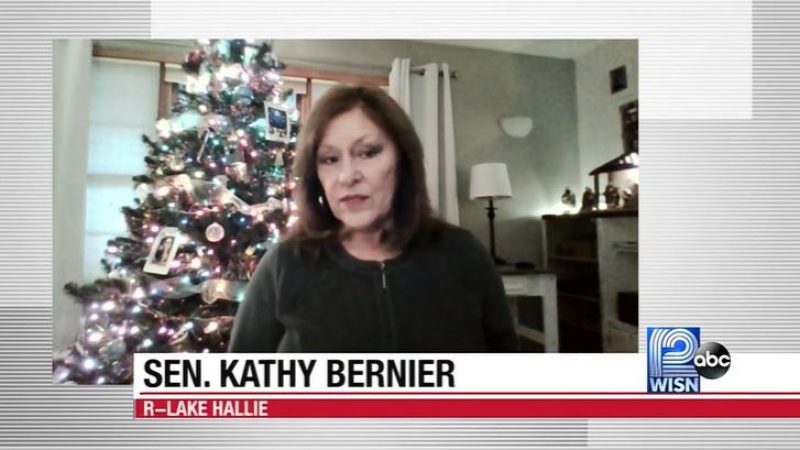The GOP chair of the Senate’s elections committee said Republican lawmakers will be looking to make some changes in state elections law when they come back next year.
Sen. Kathy Bernier, R-Lake Hallie, told the “UpFront” program that changing what constitutes an “indefinitely confined” voter will be at the top of the list. “UpFront” is produced in partnership with WisPolitics.com.
Bernier said “indefinitely confined” was supposed to apply to voters who are “frail, elderly or developmentally disabled.” Instead, she said, it was used by a wide variety of voters during the pandemic, including two state lawmakers. Indefinitely confined voters are not required to show a photo ID to cast an absentee ballot.
“That is just horrible, that is just wrong,” she said. “That is not what that provision was for, and we will have to go back and fix it.”
>> WisPolitics is now on the State Affairs network. Get custom keyword notifications, bill tracking and all WisPolitics content. Get the app or access via desktop.
Bernier said she also will bring back up a change allowing in-person, absentee voters to feed their ballot directly into the tabulator. That change has been “sitting in the Legislature for quite some time” and it would help local clerks count absentee ballots faster.
“That would reduce an extraordinary amount of absentee ballots, and the question about the envelopes and where they’ve been, and whether they are accurate. That would reduce the number greatly,” she said.
Bernier indicated the Republican caucus is split on whether to allow local clerks to count mail-in absentee or early in-person ballots ahead of election day. She said she does not favor that change, because municipal clerks lack the time and resources to do it, and she lacks confidence that early results will not somehow leak.
Also on the program, Dem Lt. Gov. Mandela Barnes said Wisconsin has a chance to be a leader on climate change and “chart a path for Wisconsin’s clean energy future.”
Barnes discussed the dozens of recent recommendations from the Governor’s Task Force on Climate Change, which he chaired.
One of the recommendations is to create an Office of Environmental Justice. Barnes said that is necessary because the “harsh reality” is that “some racial groups bear the brunt of climate change more than others.”
Barnes said the task force was bipartisan, with participation from industry groups and support from agricultural groups.
“Recommendations from this task force, they don’t come with a partisan lens. They come with a lens of reality,” he said.
In another segment, a representative of a long-term care association said COVID-19 vaccinations in nursing homes and assisted living facilities will begin in Wisconsin today.
Rick Abrams, president of the Wisconsin Health Care Association and the Wisconsin Center for Assisted Living, said the vaccines for residents and staff will be administered by personnel from Walgreens and CVS pharmacies.
“It is our hope, indeed our expectation, that everyone who is offered the vaccine will take the vaccine. Very very important,” Abrams said.
Abrams said he expected COVID-19 vaccinations in those facilities would be completed by March.
He also said the pandemic has exacerbated staffing shortages in long-term care facilities, and that post-pandemic, changes should include increasing base pay and creating a “professional pipeline” for staff.
See more from the program at http://www.wisn.com/upfront.



